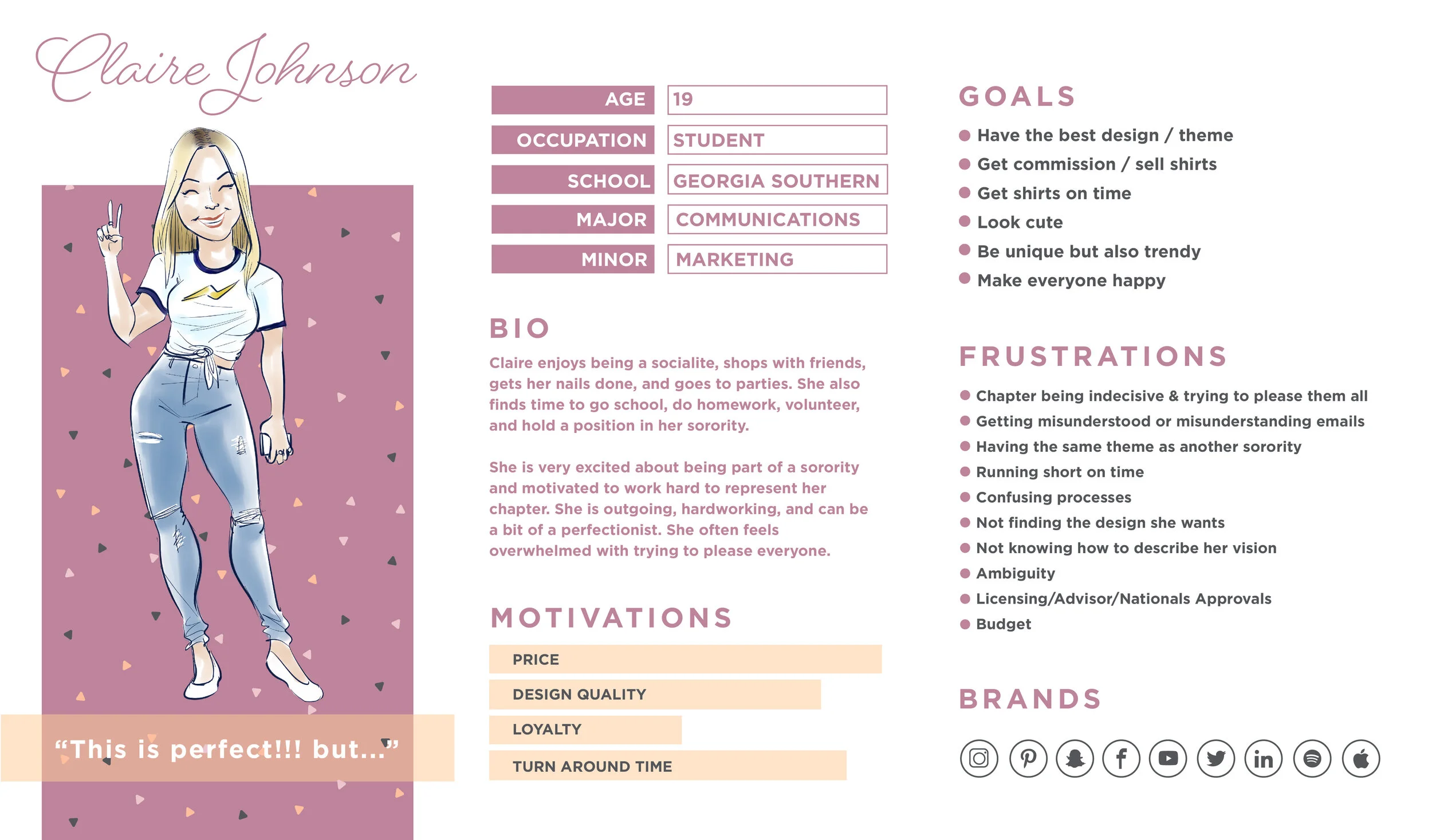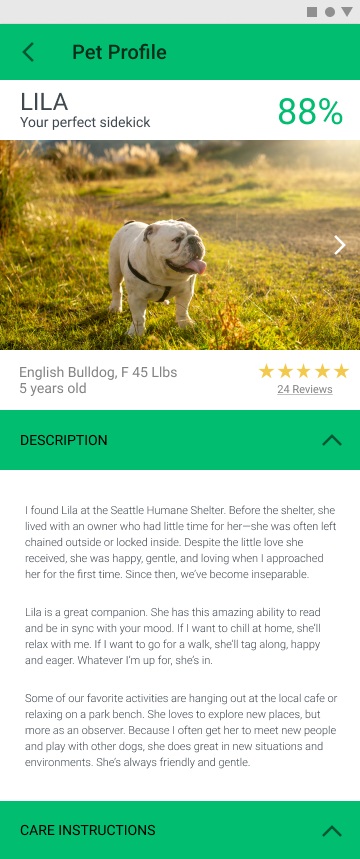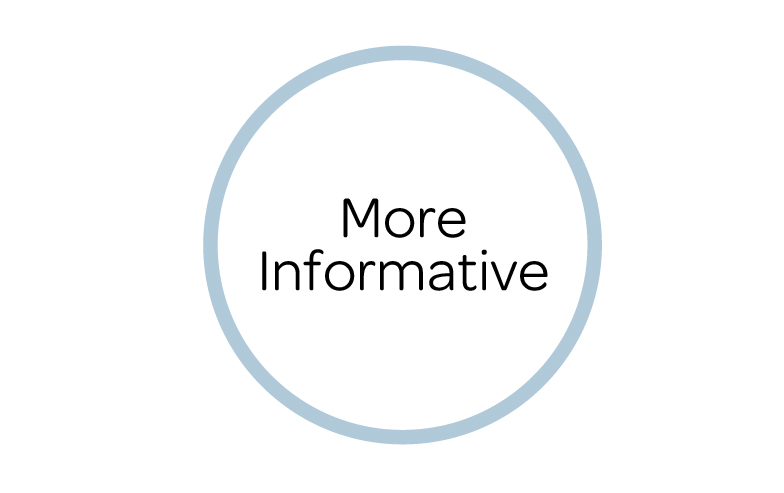Website Design
South By Sea
Rover is a rapidly growing, nationwide pet care company based in Seattle, WA. Through their website or app, Rover connects pet owners with a community of sitters and dog walkers, so pets can be taken care of when owners aren’t around.
Role: Research, UX Designer, Project Manager
Company: southbysea.com
Time: 2019 / 8 week project
Team: UX Designer, Visual Designs, Developer
Tools: Figma, Illustrator, Figma Mirror
client’s challenge
Problem Statement
Text
research
Initial Analysis
Text
Overchoice
Users can’t find the information they need so they take shortcuts that cause designers to receive incomplete or redundant design requests.
“I work full-time and live in a small apartment, so I only accept small dogs and certain breeds.”
These are the top reasons sitters will deny a request.
Findings
Rover’s initial hypothesis was incorrect
Sitters are not rejecting a service because they are not available but they are using availability as an excuse to not watch dogs that don’t match their preferences.
“I will use, ‘I’m not available' as an excuse of not being mean to people.”
“‘I’m not available’ is my go-to reason. It’s so convenient to just pick that one. I’ve never read all the other options.”
Ideation
Better Matching
After analyzing the user feedback, four areas became apparent to correct in order to support better matching to decrease inappropriate requests and sitter declines.
Armed with this matchmaking concept I got to work.
I worked on user flows from owners requesting a pet boarding and the sitter flow of evaluating a pet. I then went on to develop the messaging between the owner and the sitter.
Sketching out the each users journey helps me think about all the ways the problem could be solved.
Opportunity
Who knew my dating life could help influence a design?
If you’ve ever been to online dating sites you’d find some sort of personality matchmaking quiz. I thought why don’t we use this to match dogs with sitters?
User Testing
What people thought
Participants
New Messaging
Where I ITERATED
“I would get marked down somehow and i would care [for declining]”
“I don't think the reasons for archiving are sufficient”
“it says not a good fit, but that's not the same as, inappropriate request for service”
Final Solutions
Better matching benefits both users
Owners will get less rejections and sitter will get less requests that are outside of their scope.
messaging
View of full booking conversation
Before Redesign
This is the original booking conversation. Booking is currently a long drawn out process with a lot of back and forth. All the information is not covered until Dec 12, 23 days later The first screen contains almost no information about the dog so the sitter has no sense of connection or urgency. Here rover is missing out on the opportunity of providing the most important information up front
Messaging - initial Boarding Request Screen
I created a card of information which showcases the dog’s photo, location, breed, and age as the research showed this to be most significant information in the sitter’s decision of accepting a stay. I also implemented a new match score that lets sitters know how close this dog is to their preferences.
Some sitters will only need this information to accept the dog
Other sitters that need more information can click through to the profile to learn about more about the pet.
New dog’s profile
Sitters and pet owners will now take a survey to receive a match score between each sitter and dog.
When owners take the survey about their pet, during on boarding, it will populate this dog profile.
The profile has been laid out in the order of what we found the sitter wants to know.
Accepting a service
Before
After
After the sitter has looked over the more robust profile they can return to messaging to respond to the owner, the sitter is able to learn a lot more about the dog up front with a lot less back and forth with the owner. This will make the process a lot quicker.
Once the sitter accepts it will scroll to a confirmation page & the booking will automatically update the sitters calendar. The confirmation page is much more informative so the owner and sitter don’t have to scroll through all the information to find the information they need. You are also now able to share this stay with members of your house hold by clicking on the share button.
Correcting bad data
People feel bad rejecting dogs and especially having to tell their owners.
This is one of the reasons rover was getting inaccurate data on declines.
“I will use "I'm not available" as an excuse of not being mean to people.”
Overall these changes will help decrease declines but when declines do happen, I focused on making them as painless but as informative to Rover as possible.
By developing more relevant reasons to decline Rover can better understand why people are declining service.
Adding the “Other” option for the sitter to fill out their own reason will help inform more options in the future.
Users can still communicate through chat throughout the process if they want to personalize their service
Informing the sitter that this information will not be seen by the owner, they are less afraid of “being mean” or having to feel awkward.
Overall it speeds up accuracy and their response time.
results
User Thoughts
I developed a test plan with questions surrounding declining and accepting a booking and reviewing the dog profile. I also created a survey to quantify the outcomes of usability testing and the users overall thoughts of the new product. I tested remotely with 2 sitters and did 1 in-person test and interview. The rest of the team tested 5 additional owners.
Stakeholder Thoughts
“The proposal to look at opportunities beyond scheduling is spot on. Teams at Rover have been focused on the potential of digging deeper on understanding the unique personal preferences of both owners and providers, and considering how those dimensions impact the likelihood to book.”
- Derek Punsalan - Rover’s Director of User Experience
“Great job focusing on understanding the problem from the perspective of the provider base. In a two sided marketplace, it’s important to consider the expectations and perspectives on the demand and supply side. Had you all simply focused on fixing calendar info (owner pain point of being declined due to availability), the solution space would have been limited to just the calendar tool.”
- Derek Punsalan - Rover’s Director of User Experience
next steps
If I had more time & resources…
I’d like to test with more users, sitters and owners with actual bookings to see if the they are getting better matches and declining for accurate reasons. I’d like to learn more about additional reasons they decline and look deeper into solving those problems.
























